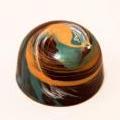-
Welcome to the eG Forums, a service of the eGullet Society for Culinary Arts & Letters. The Society is a 501(c)3 not-for-profit organization dedicated to the advancement of the culinary arts. These advertising-free forums are provided free of charge through donations from Society members. Anyone may read the forums, but to post you must create a free account.
Making a Melty Cheese Sauce Without using Sodium Citrate
-
Similar Content
-
- 11 replies
- 1,073 views
-
- 341 replies
- 77,244 views
-
- 34 replies
- 1,835 views
-
- 473 replies
- 74,938 views
-
- 8 replies
- 2,987 views
-
-
Recently Browsing 0 members
- No registered users viewing this page.




Recommended Posts